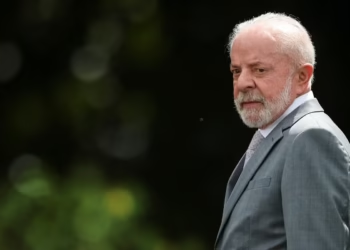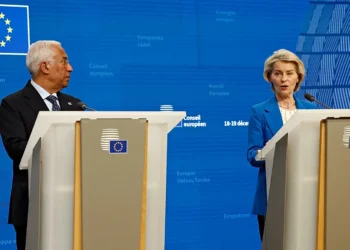CANBERRA (Realist English). Australian Prime Minister Anthony Albanese said he had a “warm and positive” conversation with U.S. President Donald Trump on Monday, discussing tariffs and the AUKUS defense pact following Labor’s unexpected electoral triumph over the conservative opposition.
Albanese’s center-left Labor Party secured a second consecutive term in office, overcoming months of trailing in the polls behind the Liberal-National coalition. The election marked the first time in two decades that an incumbent Australian prime minister has won re-election.
“I had a warm and positive conversation with President Trump, and I thank him for his very kind message of congratulations,” Albanese told reporters. “We discussed AUKUS, tariffs, and agreed to continue engaging directly in the future.”
Trump, speaking at the White House shortly after, acknowledged little knowledge of the Australian election but offered praise for Albanese. “I don’t know anything about the election other than the man that won — he’s very good,” Trump said. “Albanese has always been very nice and respectful toward me.”
Tensions between Canberra and Washington have simmered since April, when the U.S. imposed a 10% tariff on Australian goods — a move Albanese criticized at the time as “not the act of a friend.” Despite this, bilateral security ties remain strong. In 2023, the Albanese government committed A$368 billion ($238 billion) over 30 years to the AUKUS pact with the U.S. and the U.K., aimed at acquiring a fleet of nuclear-powered submarines.
While the cost-of-living crisis dominated domestic concerns, Trump’s return to power and his trade agenda also loomed large in the election. A recent survey showed that 48% of Australian voters listed Trump-induced global instability, especially over tariffs, among their top five concerns — citing fears over pension fund losses and market volatility.
Labor was leading in 85 of the 150 seats in the House of Representatives as of Monday morning, with a dozen still too close to call. Albanese’s comeback followed a difficult 2024 marked by sliding approval ratings and high inflation. His fortunes turned in March after the opposition’s controversial proposal to slash public service jobs and restrict remote work — policies widely compared to Trump-era measures.
Opposition leader Peter Dutton, a vocal conservative, appeared likely to lose his seat. Political analysts point to a broader backlash against Trump-aligned rhetoric, drawing parallels with recent elections in Canada.
“We thought Trump’s election might help our message,” said Jason Wood, a Liberal MP leading narrowly in a Melbourne-area seat. “But no one expected the fallout on tariffs. That really changed the mood.”


















